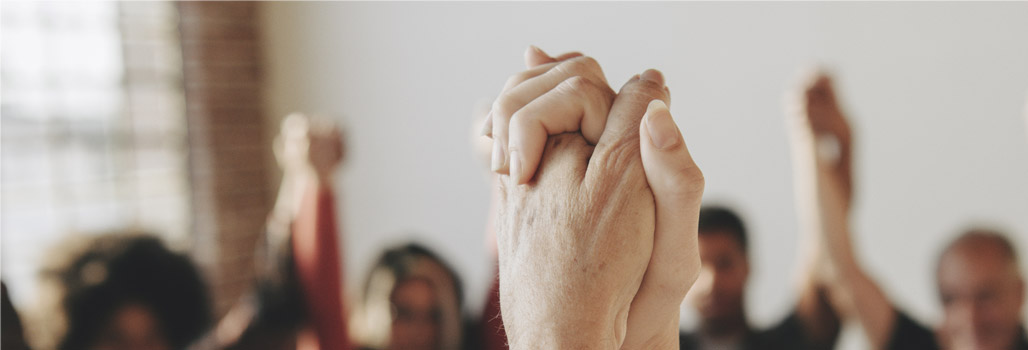Due to the struggles that are associated with alcohol and drug disorders, many people do not know where to begin. By using professional treatment services it is possible to treat dependence just like other illnesses and achieve long term abstinence.
This page will explain holistic approaches to treatment and how you or your loved one can begin and maintain recovery from addiction.
What is Addiction Rehab (Rehabilitation)?
When we refer to ‘rehab’ for addiction, it encompasses therapeutic interventions and medical treatments required to address addictions on substances such as prescription drugs and illegal drugs including heroin.
Rehab treatments are valuable when they are personalized to your individual needs, and may include inpatient programs, outpatient care, medically-managed detoxes and aftercare.

Facts & Statistics about Addiction in Santa Monica
Prevalence of Substance Use Disorder, by Drug Type
(IN THOUSANDS)
- 2,7578.5%Any Substance
- 2,0886.4%Alcohol
- 1,0683.3%Ilicit Drugs
- 2060.6%Pain Medication
Drug- and Alcohol-Induced Deaths by Age Group, California, 2016
- Alcohol-Induced
- Drug-Induced
- 18 to 250.5
- 9.6
- 26 to 354.3
- 13.9
- 36 to 6424.2
- 22.9
- 65+23.7
- 9.4
Drug Use, by Selected Type and Age Group California, 2015 to 2016
- 12 to 17
- 18 to 25
- 26+
- Marijuana*13.2%
- 34.0%
- 13.5%
- Misuse of Pain Medications3.5%
- 8.0%
- 4.3%
- Cocaine0.8%
- 7.2%
- 1.8%
- Heroin0%
- 0.4%
- 0.2%
What are the treatment options available in Santa Monica?
A consolidated treatment approach is the most successful way to identify and address the prime causes of drug or alcohol addictions. Identifying coping mechanisms to treat the root causes of your addiction is just as important as treating the symptoms of addiction.

Private Residential Programs
Residential rehab programs enable you to stay on the same property that you are getting treatments in. It is very beneficial to have 24-hour care and treatment access. When you reside at a rehab facility you will be safe from many of the triggers in your home environment that may influence your substance misuse.
You are far less likely to relapse when you finish your addiction treatment program in a controlled facility where the environment is supportive.
When you struggle with a severe substance dependency, or if you suffer from a dual diagnosis or co-occurring illness, a residential treatment program is advised. Sobering up is possible if you take part in a residential rehab program, however if you wish to maintain sober living you will have to overcome the challenges that come with the early stages of recovery. After you complete your residential rehab program your priority will be your transition to greater independence as you consider what you want from your future.
Do You Need Help?
United Recovery California can help you heal from your dependencies.

Sober Living Programs
Sober living rehab programs are designed to help you to have more control over your life, through guidance and a support structure. Sober living programs include:
- Sending a house manager to see how you are doing regularly
- Fostering the kinds of behaviors that are needed in recovery
- Developing supportive and meaningful connections with others in recovery
Outpatient Programs
The flexibility of outpatient treatment programs means that you do not have to stop work commitments or family commitments, as you can attend the rehabilitation facility and have regular treatments in your own time.
Outpatient programs assist you with:
- Education on drug use
- Counseling and therapy which includes Cognitive Behavioral Therapy or group sessions – Your individual needs often determine the duration of your outpatient program, which could extend from a couple of months to a year.
Detox Only Programs
The first steps of a treatment program is a detox, which removes any traces of substances from your system and addresses your physical dependency on it. As your body becomes accustomed to not having the drug it was dependent on, withdrawal symptoms typically occur.
The withdrawal process marks the start of the rehabilitation process, and must be followed up by addressing the main causes of your addiction, to avoid repeating the same damaging pattern of behaviors. It is common to confront withdrawal and cravings for a while after the substance has been eradicated from your body. Your chances of relapsing are limited as you build on the skills necessary for long-term abstinence.
Paying for Private Treatment
Private treatment costs must be settled yourself or claimed via your health insurance. Most health insurance providers offer some cover for rehab, which includes medical detox, the rehab treatment program, medicines you may need and aftercare programs. The amount covered for your rehab treatment is set by your provider and the terms and conditions of your policy.
We suggest you understand how much cover you have prior to enrolling in a program. You can visit our Verify Your Insurance page for more details on the cover that is available to you.
If you do not make a claim against your insurance provider you must pay for your rehab treatment. Many treatment centers provide payment plans to clients who cannot afford the cost upfront.
State Funded Programs
State-funded rehab programs were developed to support individuals without the financial means to tackle alcohol addiction or drug use disorder.
Via state funding and medicaid, these programs may kickstart your recovery with:
- Programs for a safe detox (medically-supervised if required.
- Rehab treatments and extended support services
If you are not protected by private health insurance or you do not have access to funds, you can apply for a state-funded treatment program. You can expect to provide:
- Proof of where you live
- Proof of your financial situation
- Your medical history and details around your substance misuse
- Proof that you have legal rights to live in the US
You can find out more about the application process here: https://www.grants.gov/
You can also download this file to contact your state agency.

The following state-funded addiction rehab programs are available in Santa Monica:
CLARE Outpatient
1334 Lincoln Boulevard, Santa Monica, CA 90401
310-314-6200 x3426
www.clarematrix.orgMens Treatment Program
905-909 Pico Boulevard, Santa Monica, CA 90405
310-314-6200 x3426
www.clarematrix.orgWomens Treatment Program
844 Pico Boulevard, Santa Monica, CA 90405
310-314-6200 x3426
www.clarematrix.org
Maintaining Addiction Recovery in Santa Monica
Remaining active in addiction recovery can be hard once you finish your treatment programme. When you were in rehab the environment was controlled and you had support from professionals. When you depart rehab there will be some new challenges that you will have to learn to cope with. If you experienced a severe dependency and have not developed a social structure to return to when you leave rehab, you may find long term recovery more of a challenge. Relapse is a possibility without the right aftercare and support groups to help you navigate your new life.
The following AA/NA meetings are available in Santa Monica:
Lil' Meeting in the Hood
Open, Discussion, Wheelchair, Speaker, No Smoking and Hybrid Meeting:
Reed Park, 1133 7th Street, Santa Monica, CA, 90401
Tuesday: 7:00 pm – 8:30 pm
https://westsidena.org/AA - 11Th Step Morning Meditation 18th Street Santa Monica
Open and Discussion: 1260 18th Street, Santa Monica, CA 90404
Monday: 7:30 am – 8:30 am
https://alcoholicsanonymous.com/AA - SERENITY MANOR TUESDAY NOON STEP STUDY
12 Steps & 12 Traditions, Open, Speaker and Step Meeting:
1458 26th St, Santa Monica, CA 90404
Tuesday: 12:00PM – 1:00PM
https://lacoaa.org/

Aftercare & Alumni Programs
An aftercare program continues to provide recovery support when you return to your home environment. Unfortunately Relapse may occur in up to 60% of people, and because of the natural events of life post-treatment, having extended support is an integral part of your recovery journey. As you get near to completing your rehab program, we will collaborate with you to develop an aftercare package that includes any services most vital to your long-term recovery.
One good benefit of finishing rehab is entering an alumni community program, which allows you to liaise with peers and staff as part of a recovery community. Through this network you will be attending special events and receive encouragement and advice from other members who are in long-term sobriety. You may also want to pay the favor forward, by providing your support to other peers.
Support Groups (Fellowship Meetings)
With the help of support group events you can enable a support structure that is conducive to your long-term sobriety. When you join a group that follows the 12 steps, like Alcoholics Anonymous and Narcotics Anonymous, you will receive recovery support via local meetings.
During meetings, individual members will share their stories and learn valuable insights from others. Companionship, empowerment and taking responsibility for our actions are key to long-term recovery, and support groups provide many with the necessary tools to stay sober.
Support for Families & Children Affected by Addiction
Addiction impacts on those living in the household to some extent. Help and support is just as crucial for the family members as it is for the individual with the addiction issues.
Family support groups teach you and your loved ones vital coping tools for your own life and allow you to offer more support to the person who has the addiction.

Some Family and Child Support Groups are:
- Parents of Addicted Loved Ones
- SMART Recovery Family & Friends
- NAMI Family Support Groups
- Al-Anon
- Families Anonymous
- Alateen
- Nar-Anon









